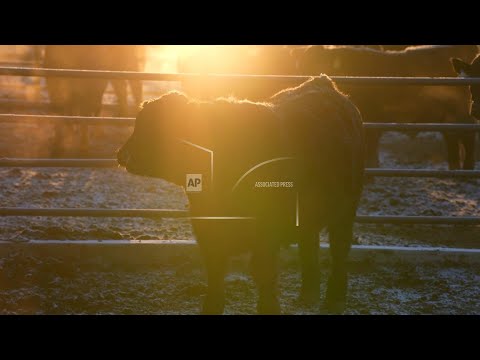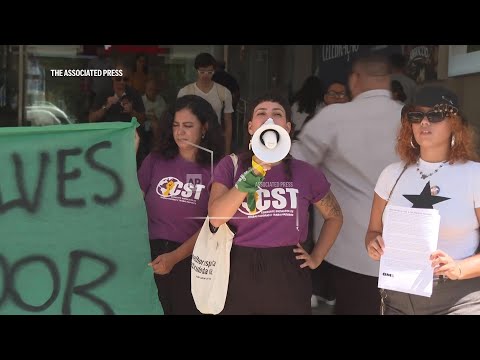(11 Apr 2025)
RESTRICTION SUMMARY:
ASSOCIATED PRESS
ARCHIVE: Fort Collins, Colorado – 9 March 2023
1. Various cows
2. Various workers preparing feed for cows
ASSOCIATED PRESS
Minneapolis – 11 April 2025
3. SOUNDBITE (English) Michael Swanson, Wells Fargo Agri-Food Institute chief agricultural economist:
“It depends on how long, and if people really believe this is gonna be a long-term deal. For example, going back to my example about the food supply, lysine and Tryptophan, things that we need to feed animals and feed ourselves. We don’t produce them anymore because we just found it more economical, to use a word, to buy them from China. But if we felt that it always be cheaper to produce them and buy them in the United States, there are plenty of good companies that would make them in the United States, but they’re not gonna do it until they’re pretty sure that the millions and billions of dollars they invest are really gonna pay off. So the question of certainty also goes into, hey, how much is gonna come out of this? That’s the big question most people have no clarity on right now is how long and how certain are these effects?”
ASSOCIATED PRESS
ARCHIVE: Delaware, Ohio – 14 May 2019
4. Various of soybeans being loaded into truck
ASSOCIATED PRESS
Minneapolis – 11 April 2025
5. SOUNDBITE (English) Michael Swanson, Wells Fargo Agri-Food Institute chief agricultural economist:
“We’ve gone through this before. In 2018-19, we did have a trade dispute with China and they’ve tariffed soybeans and corn aggressively from the United States. And what we’ve seen is Brazil and Argentina have stepped in to take over more of the market share to China as a market. So these things do have long-term consequences, both pros and cons, depending on whose shoes you’re in at the end of the day.”
ASSOCIATED PRESS
ARCHIVE: Delaware, Ohio – 14 May 2019
6. Farm fields
STORYLINE:
As American companies planning investments watch and wait for the effects of President Trumps tariffs on China, global supply chains may already be shifting away from U.S. producers.
While U.S. President Donald Trump paused import taxes this week for other countries, he raised tariffs on China and they now total 145%. China has denounced the policy as “economic bullying" and promised countermeasures. The new tariffs begin Saturday.
According to Michael Swanson, chief agricultural economist at Wells Fargo’s Agri-Food Institute, many companies in the United States are watching to see if the tariffs stay in place before investing in domestic production.
“Lysine and Tryptophan, things that we need to feed animals and feed ourselves. We don’t produce them anymore because we just found it more economical, to use a word, to buy them from China,” Swanson said. “There are plenty of good companies that would make them in the United States, but they’re not gonna do it until they’re pretty sure that the millions and billions of dollars they invest are really gonna pay off.”
China announced Friday that it will raise tariffs on U.S. goods from 84% to 125% — the latest salvo in an escalating trade war between the world’s two largest economies that has rattled markets and raised fears of a global slowdown.
Swanson said though the trade war may eventually be a win for some U.S. companies, foreign suppliers are already looking for ways to take their place in the Chinese market.
===========================================================
Find out more about AP Archive: http://www.aparchive.com/HowWeWork
Twitter: https://twitter.com/AP_Archive
Facebook: https://www.facebook.com/APArchives
Instagram: https://www.instagram.com/APNews/
You can license this story through AP Archive: http://www.aparchive.com/metadata/youtube/72324fafeada4dcea3744aa52b1f942e
Author: AP Archive
Go to Source
News post in April 16, 2025, 6:06 pm.
Visit Our Sponsor’s:
News Post In – News





